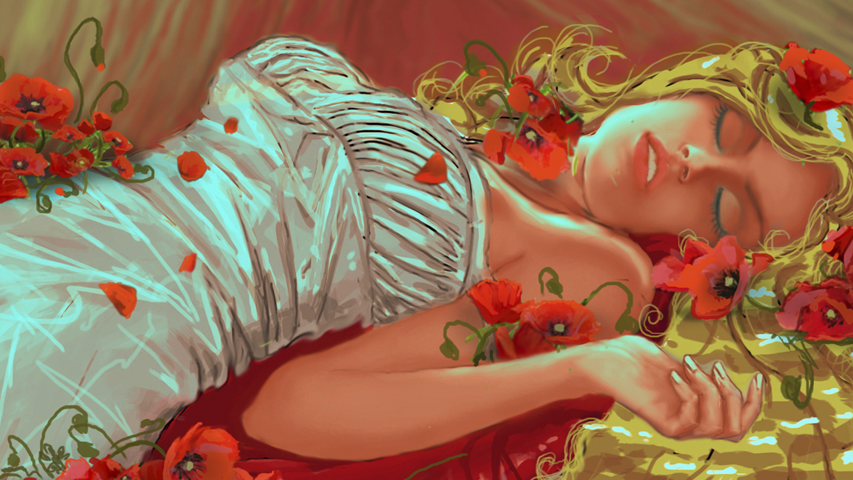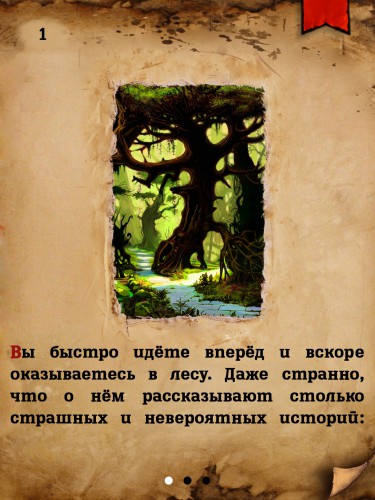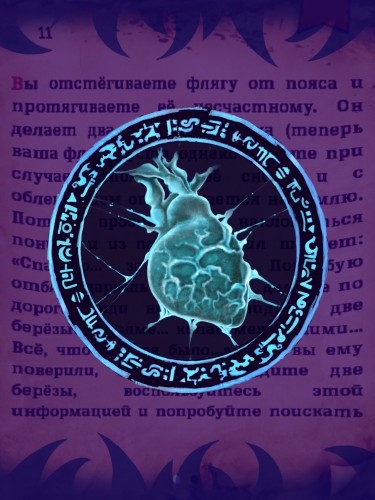We continue to publish materials in our “Who’s Who” series (recall, instead of posting game announcements from young and not only studios, we invite them to tell about themselves). This time we talked to the studio topkun games, which is developing a mobile book-game.

Our questions were answered by the founder and chief developer of the studio Vitaly Ostrovsky, who left the studio NeskinSoft (“Democracy“, “Run, Vova, Run“, etc.) in order to create his own game – a digital version of the Dungeons of the Black Castle, a game book written by the writer Braslavsky in the early 90s.
Hi! Please tell me a little about yourself first, what projects have you worked on before?
Vitaly Ostrovsky
Good afternoon. I am a C++ programmer by profession, I have been working on game projects of various scales since 2009. I had a chance to work in a large Steel Monkeys company on a then-still-alive ambitious AAA-class 2DTV project, and in small teams, where I worked mainly on mobile projects. Especially pleasant memories remained from working at NeskinSoft: good games, a friendly team and a lot of room for self-realization. Actually, it was in this company that I realized by a living example that I was quite capable of pulling my own projects. Thanks a lot to the guys for that!
Why did you decide to make games-books?
Several factors successfully coincided.
Firstly, when I was engaged in my first independent game (a remake of the good old card game “King”), it became clear that it was necessary to diversify the work: to have the strength and time to do something else.
Secondly, books-games are a very strong anchor straight from childhood, and anyone likes to dig into positive emotions and experiences from the past, consciously or not trying to relive them. Thirdly, the almost empty niche in mobile games seemed very attractive.
By the way, have you suggested that NeskinSoft do something similar, they also regularly experiment with mechanics? It would be possible to take up a hobby right at the workplace.
No, there were no concrete proposals either from me or from NeskinSoft in the direction of cooperation. Nevertheless, game books are high-risk projects, and a stable game studio should have a clear strategy, a business plan, and a higher level of responsibility to the team. I practically risk nothing except my personal savings, I have no obligations to anyone except my family.
Was it difficult to come to an agreement with the author of the original “Dungeons of the Black Castle”? On what terms did you agree to cooperate?
It was quite simple to negotiate with Dmitry Yuryevich Braslavsky. His interests are represented by an entrepreneur like me, only in the field of publishing paper books. I got in touch quickly, discussed the conditions quickly, sketched out concepts in a few weeks, made a design document, approved it, and the work went on. Since then, we have been cooperating very pleasantly, promptly and conflict-free. Moreover, the copyright holder practically does not interfere in our patrimony: starting from development and ending with marketing, all decisions are made by the team independently.
The financial terms of cooperation are simple: we pay a fee in advance for the right to use intellectual property and deduct a percentage of sales in the future.
By the way, how relevant is this now… genre “on paper”? Is it still being printed?
The genre also occupies a niche position in non-digital form: there is a community of strong fans, but it is small. Books-games and various kinds of interactive stories are published regularly, but in small editions. For example, the same “Dungeons” received a new, fourth edition last year.
In the West, this genre, as far as I can tell, is much more developed, but this does not prevent us from doing our job, yet the digital distribution of such entertainment in the modern world dominates traditional ways.
In the West, similar games on mobile platforms are also common. Have you found out how profitable this business is there?
Of course, I studied it. Both book editions and games on mobile (and not only) platforms are more common. I don’t have any figures on turnover, but based on indirect signs and some reports from representatives of the genre, I can say that everything looks promising from the point of view of income. And this applies not only specifically to game books, but also to text games in general. Also, do not forget how dynamic the mobile and IT industry is in general: today everyone is playing endless runners, and tomorrow, for example, clickers start earning. Each product will have its own consumer, here the main weight already acquires the quality of the product and its correct positioning in the market.
Now, as far as I know, open-source solutions for the development of game books are even being created in the West. And with the help of what tools do you create a game (and, by the way, what was the reason for the choice of these particular tools)?
There are enough ready-made solutions for interactive stories not only in the West, it is enough to study some specialized resource, for example ifhub.ru . But I do not know the details of these tools, since I have not even thought about using anything third-party. The reason for this was the presence of experience, in particular in mobile development, knowledge of the process from the creation of the project to its distribution to the store. And already this decision has led to another — to make your own implementation of the mechanics of the game books directly for your own needs. I calculated all the risks and was satisfied with the result. As a result, it turns out that the mechanics are its own, and cocos2d-x is used as a framework: I am familiar with it from previous projects, it is simple and almost ideal for such projects.
The last question: when do you plan to launch the project and under what monetization model?
The launch is planned in June, if the reviewers from the App Store allow, then already in the twenties. I have been thinking about the monetization model and communicating with colleagues for probably a whole year since the start of development. Different options were considered, but in the end, with a large margin, I preferred the unpopular classics — a paid game without advertising and IAP.
Important: “Dungeons” are still a complete, complete game piece, something to introduce, break or dilute – here, like walking through a minefield, you can get a strong negative from fans of the series, on whom we count as the core of the gaming audience. A ready-made holistic game, beloved by many, is not a place for experiments in monetization, here our task is only in high-quality performance and promotion.
Thanks for the interview!
You can follow the game in this public.



